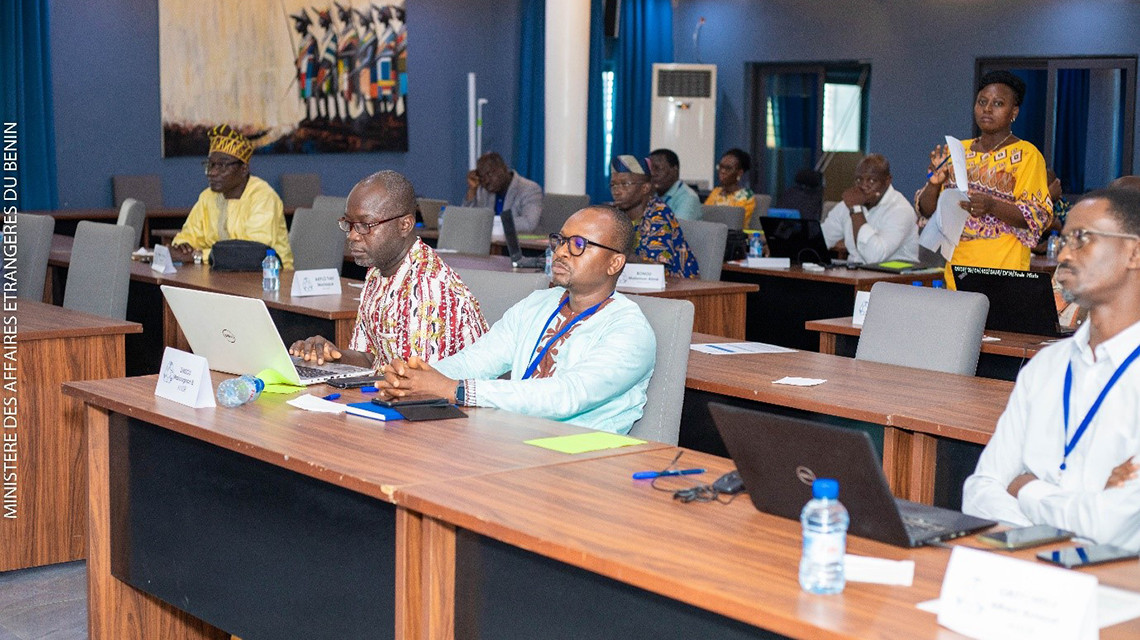The IAEA has launched a new advisory service to develop the education programmes needed for safe and sustainable nuclear power, as well as other types of nuclear science and technology. Through the Integrated Nuclear Education Advisory Services (INEAS), the IAEA will support countries in establishing nuclear educational programmes at the national level, as well as at universities.
"As more countries turn to nuclear science and technology, the need for enhanced education and competence-based curricula becomes increasingly critical," said Wei Huang, Director of the IAEA's Division of Nuclear Education, Planning and Knowledge Management. "Academic institutions play a central role in this effort. By benchmarking their current capacities and developing long-term strategic plans, they can help build a skilled workforce that meets national needs and supports the safe and sustainable use of nuclear technology."
The first INEAS missions were conducted in March 2025 at a national level in Benin and in April 2025 at university level in Kazakhstan.
Education to support Kazakhstan's Nuclear Energy Goals
The IAEA conducted its first INEAS university mission in April in Ust Kamenogorsk, Kazakhstan, a country that is looking to restart its nuclear power programme. The mission - which engaged more than 90 participants from academia, government and industry - laid the ground for the development of a new bachelor's degree programme in the 'Operation of Nuclear Power Plants' at the D. Serikbayev East Kazakhstan Technical University. It included curriculum workshops, technical visits and stakeholder consultations.
The IAEA also participated in an international forum with 14 expert presentations from Kazakhstan, Belarus and Russia, highlighting international best practices in nuclear education. Key outcomes included recommendations for planning national human resources development, curriculum enhancement, and expansion of cooperation through IAEA technical projects and STAR-NET, a regional network that promotes education and training in nuclear technologies.
"We are grateful to the IAEA for sending experts to our university to support the development of nuclear energy infrastructure. Their assistance also proved very helpful in designing the educational programme," said Aizhan Baidildina, an associate professor at the the D. Serikbayev East Kazakhstan Technical University.
Kazakhstan, which is working with the IAEA to develop the infrastructure to reintroduce nuclear power, aims to complete its first nuclear power reactor in the next eight years. Its construction is expected to provide clean, reliable energy to the Central Asian country of 19 million people. Scientific and technical personnel are also being trained to operate the plant. Kazakhstan has the second largest uranium reserves in the world, accounting for 14 per cent of the global total. The country currently operates research reactors as well as several other nuclear installations related to the front end of the nuclear fuel cycle.

An INEAS mission hosted by X-TechLab, under the umbrella of the Ministry of Foreign Affairs, took place in Cotonou, Benin to provide guidance on establishing a sustainable national nuclear education programme. (Photo: X-TechLab)
Paving the Way for Nuclear Education Programmes in Benin
The inaugural national INEAS mission was conducted earlier this year in Cotonou, the largest city in Benin. Benin is prioritizing education and capacity building in water management, nuclear medicine, security and safety. The INEAS mission focused on developing guidance for assessing and planning sustainable nuclear education programmes; strengthening national coordination to build capability; and creating indicators to plan and monitor programme sustainability.
The mission brought together national stakeholders in nuclear education and training under one umbrella and created a forum and action plan for future collaboration, including a preliminary assessment of educational capabilities in the country.






